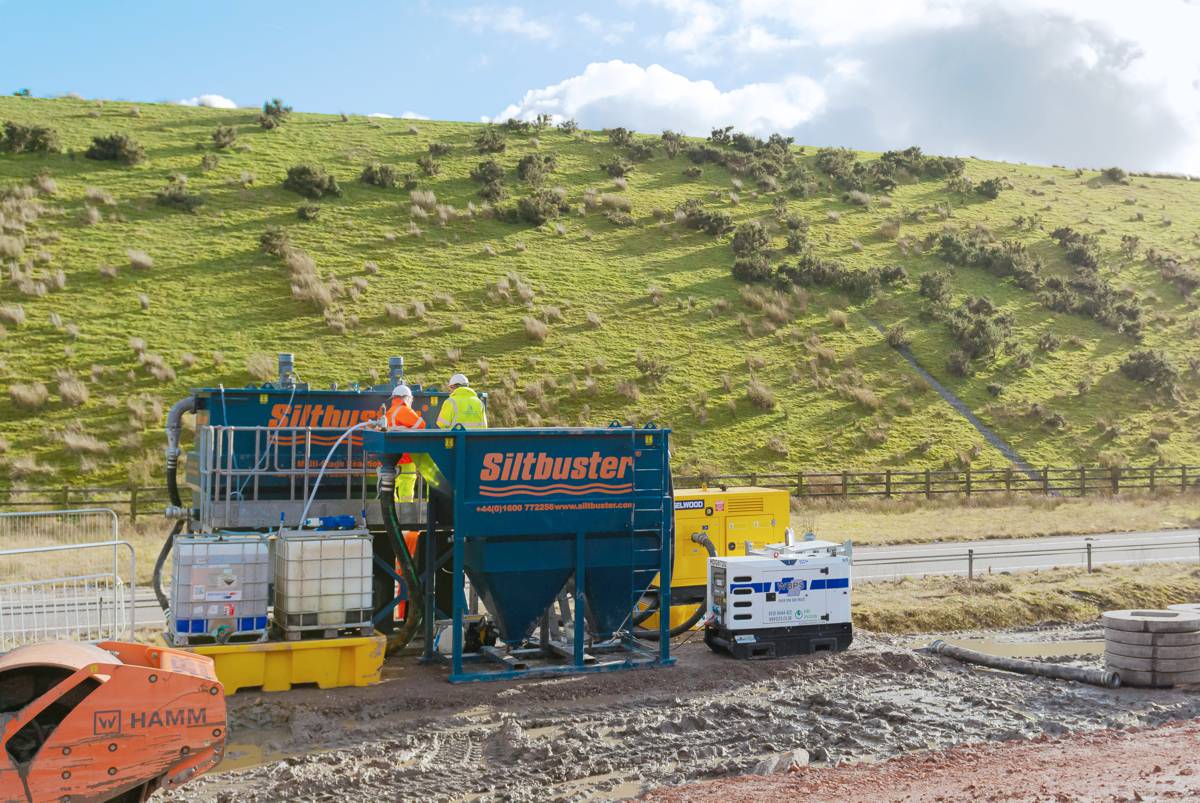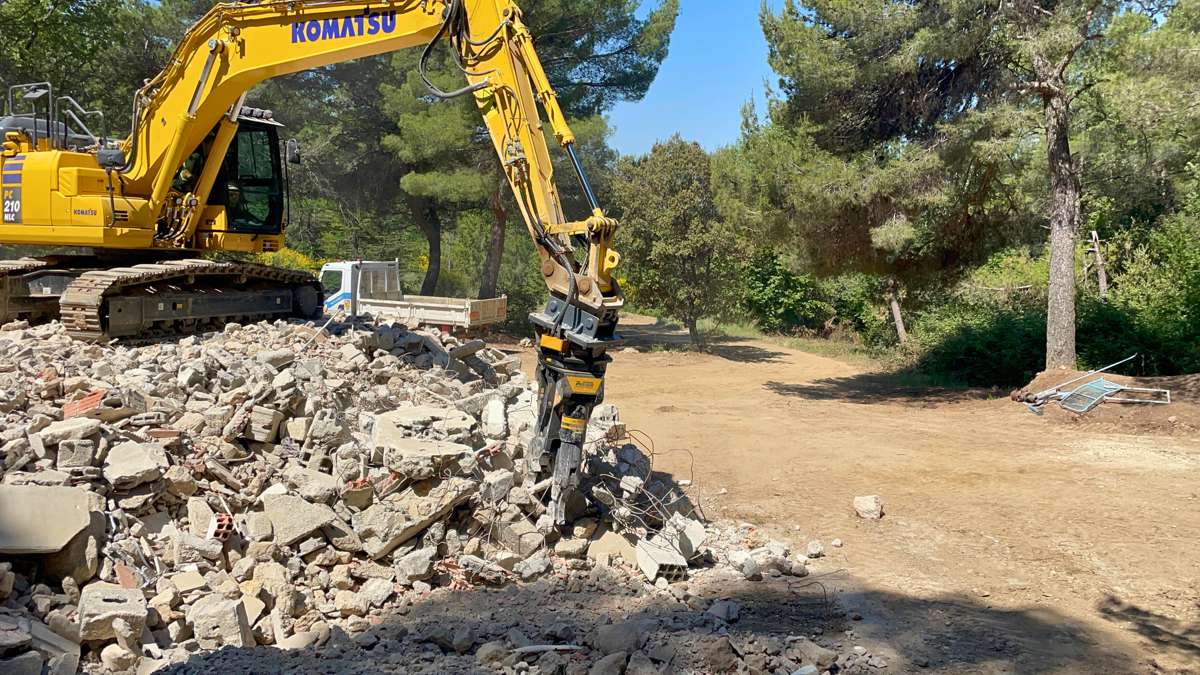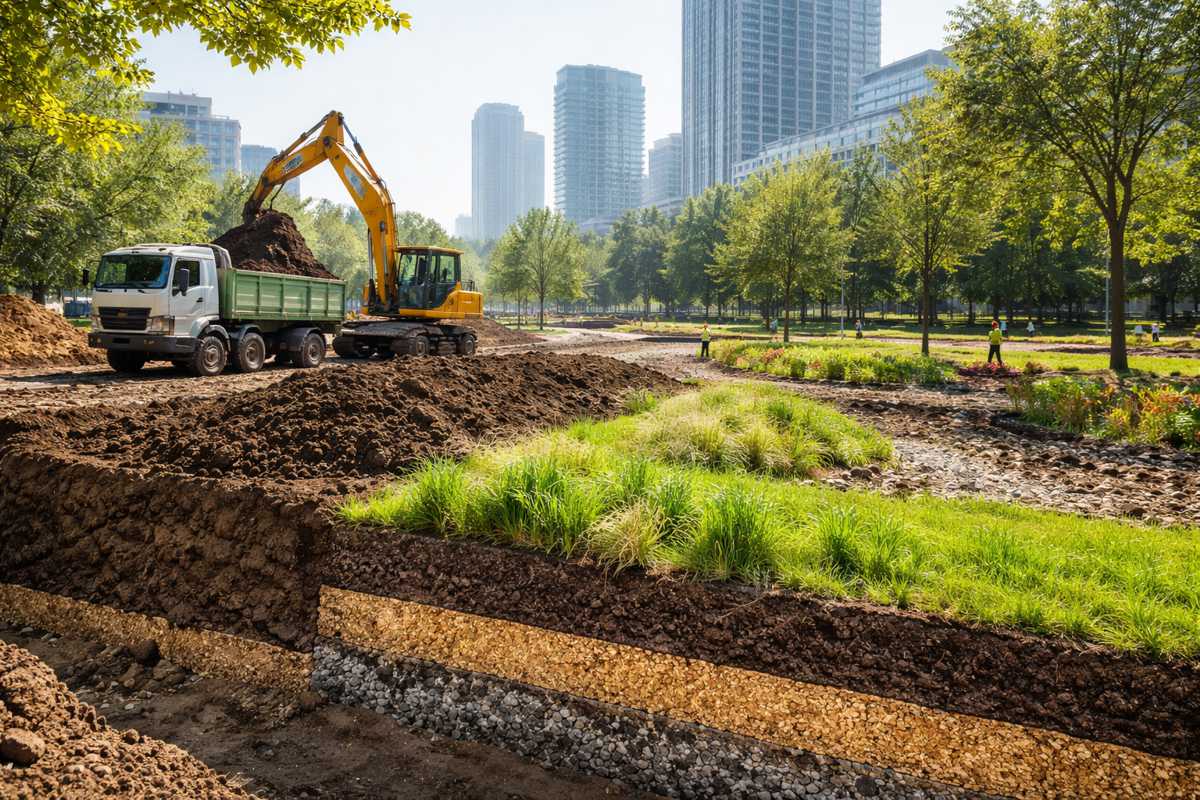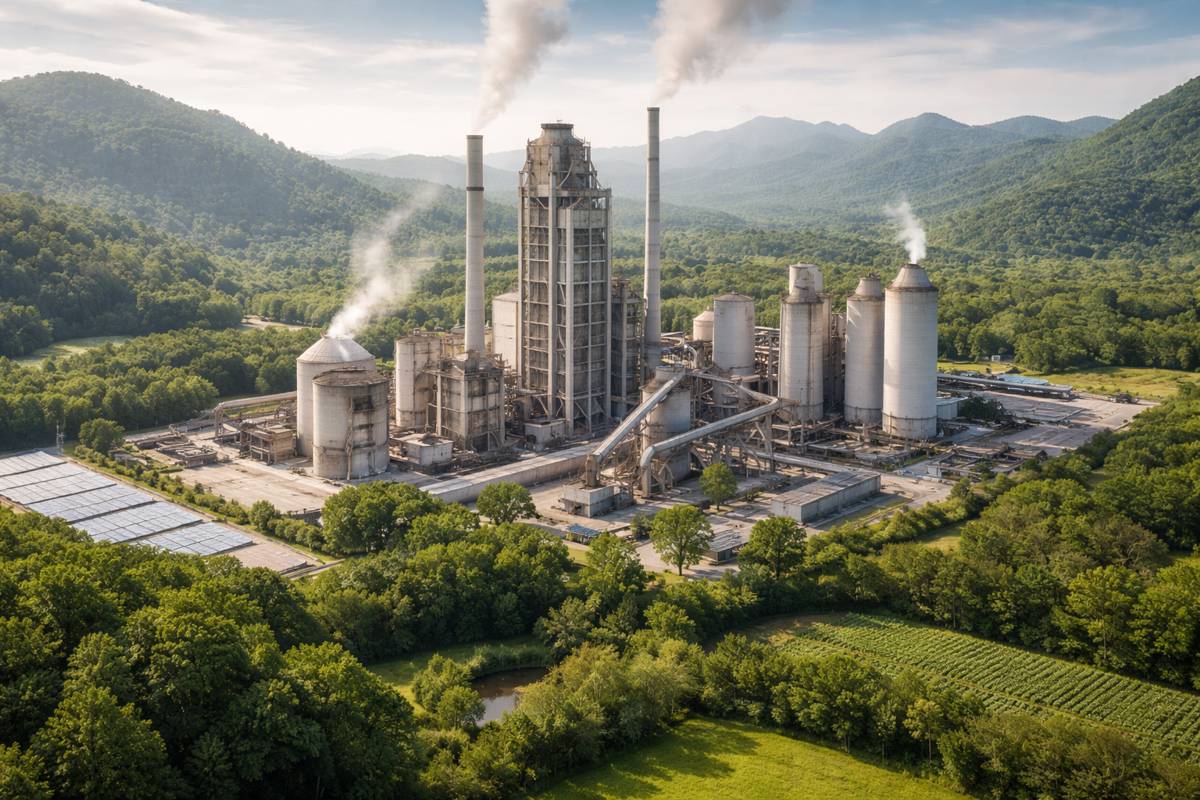Siltbuster explores avoiding Water Pollution issues on Road Schemes
Article by James Tucker, Business Development Manager (Construction) at Siltbuster.
Across all sectors, there has been an acknowledgement of the need to protect the environment and the construction industry certainly has its part to play.
When considering a treatment solution, we always consider the source of the water, types and concentrations of contaminants, and the requirements of the final discharge location.
It’s important to consider that when dealing with water on construction sites, the majority of water is not some heavily polluted industrial effluent, but in many cases simply ground water infiltration or rainwater runoff, which has picked up suspended solids from the exposed soil. If the construction site was not there, in most cases this water would naturally flow to the surface water drain or watercourse.
However, once construction works start, this normally clean water flowing into rivers can become polluted. It is therefore important to treat at source, cleaning up the small volume of dirty water, rather than having to clean up the whole river down the line.
How Water Treatment is Different on Road Schemes
On road construction schemes, we are essentially dealing with a very long, narrow construction site. Where a normal site may have a single lagoon collecting water, before treatment to a single discharge point, a road scheme will have multiple smaller systems spread over a larger area.
Treatment systems on different parts of a project will vary according to the requirements. Some sections may produce high pH water from concrete washout, while others may only need a simple settlement system to capture solids. As the geology along a route changes, the number and type of treatment modules deployed from the hire fleet may also need to change, for what may initially look like two identical applications.
Having modular treatment solutions enables us to scale up or down and provide only the level of treatment required. For road schemes we can use a single settlement tank, selected from the range of different sizes available. For larger compounds with higher flows, multiple units can be provided, with the flow distributed between them.
The A465 Heads of the Valley (HOV) major road infrastructure project in Wales is a good example of a long-term and complex road construction scheme and how the various conditions and geology has represented the contractors with a requirement for a variety of water treatment systems with great flexibility and multiple treatment options on the 6 phases until the project is set to be completed in 2025, with a further operational and maintenance contract until 2055.
The need for upgrading the route was identified in 1990 as the width restricted the traffic flow with limited opportunities for overtaking and poor visibility. The upgrade was not only seen as critical to road safety, but also to boost the social and economic regeneration of the HOV area.
Not only did the bidders have to take into account the huge complexity of the construction work, which included the geomorphology of the route which required 20 retaining walls (the longest measuring 500m), 35 bridges to be widened or built, crossing of a railway, 6 new grade separated junctions and numerous abandoned mine working along the route, they also had to outline in details how they would drive and support social and economic value for the local communities throughout the construction. The plans also had to outline how the project could be carried out, both as a technical challenge and financially.
Commitments were also made to create 120 apprenticeships, 60 traineeships and 320 internships as well as spending £400M with Welsh companies of which £170M was allocated to businesses along the HOV route.
For the wider community, a range of school initiatives and community events went into the planning along with environmental commitment to protect existing sources, including extensive landscaping.
For the environmental part, Siltbuster has been involved and deployed numerous water treatment systems throughout since phase one started, working closely with the scheme’s environmental teams to protect the natural water courses and minimise any delays to the construction work.
Assessing the Level of Treatment Required
The in-house laboratory at Siltbuster not only provides characterisation of samples but can also conduct treatability trials and provide an indication of treated water quality achievable using different treatment methods. Trials using site specific wastewater samples can reliably identify the most appropriate treatment system and ensure that the best solution goes to site first time. Ongoing sampling during site attendance ensures that if conditions change, the operation of the equipment can be adjusted, or additional treatment modules deployed if required.
For the Heads of the Valleys scheme, we found that the chemical pre-treatment requirements varied and not all sites required identical systems. Whilst the settlement stage remained the same for sites with similar flow rates, we were able to offer the client cost savings by removing one of the chemical dosing stages on sites that didn’t require it.
Rather than deploying a generic, inflexible treatment system, the modular treatment stages that make up our solutions can be combined to provide the treatment process and size required. With all equipment interconnected via flexible hoses, the treatment systems can fit onto the small narrow spaces we’re limited to when working on a road scheme.
In Summary
Over the past 8 years we have deployed equipment to all the sections and stages on numerous locations across the HOV scheme. It’s been a long running project and being able to support such a local scheme that has a strong focus on the environment and local communities, has been great.





























